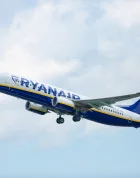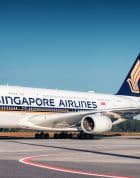A while back I wrote a post asking you guys if I should take the Trans-Siberian Railway from Moscow to Beijing. I needed to get between these two cities anyway, and using my World Cup Fan ID, I’d be able to travel through Russia while avoiding the painstaking process of obtaining a Russian visa.
Truth be told, at the time of writing the post, I had already pretty much made up my mind to do it. I just wanted to double check to make sure I wasn’t absolutely insane for entertaining the idea. As it turns out, I received the full blessing of those who commented on the post to go ahead with the trip, and so…
I’m Booked!
I usually don’t write about upcoming trips until they’re imminent, but this promises to be a hugely exciting trip, so I’m very eager to share some of the early details with you.
I will be making the following journey from Moscow to Beijing:
- Moscow to Nizhny Novgorod, 3 hours by train, passenger seats
- 1 night stay in Nizhny Novgorod
- Nizhny Novgorod to Novosibirsk, 2 days by train, First Class on the Rossiya
- 3 night stay in Novosibirsk
- Novosibirsk to Irkutsk, 1 day 12 hours by train, third class
- 3 night stay in Irkutsk
- Irkutsk to Beijing, second class

The timing of the stops is designed to allow me to still catch the World Cup matches live on TV, even after leaving European Russia where all the matches are being played. The stops also hold the distinction of being the few Russian cities east of Moscow where SPG/Marriott hotels can be found – I will be staying at the Sheraton Nizhny Novgorod, the Marriott Novosibirsk, and the Courtyard Irkutsk City Center, all at extremely affordable points rates given the relative lack of tourism in this part of the world.
As of now, I’ve booked everything except the Irkutsk to Beijing leg of the journey. That’s because as far as I can tell, it’s not possible to book international train travel between Russia, Mongolia, and China over the Internet.
Russia and China share a border crossing at Zabaikalsk/Manzhouli, so I could of course book Irkutsk–Zabaikalsk and Manzhouli–Beijing with Russian Railways and China Railways respectively, and cross the border by land.
However, my top preference would be to take the Trans-Mongolian line via Ulaanbataar, and I haven’t been able to figure out how to book train tickets online which involve Mongolia. So the plan as it stands is to book the Irkutsk–Ulaanbataar ticket in-person at the train station in Moscow, and then the Ulaanbataar–Beijing segment in-person at the train station in Ulaanbataar. Of course, I could always book via a travel agency – one of those that buys train tickets in bulk and then sells them on – but I’d hate to pay the significant markup that these agencies charge.
If anyone has experience doing a trip similar to this, please get in touch. I’d be eternally grateful for your help!
Trans-Siberian Railway Booking Tips
The first thing to know about booking a Trans-Siberian trip is that there’s no such thing as THE Trans-Siberian train. Many different trains run along the stretch of railroad that connects Moscow with China, Mongolia, and Russia’s Far East, and you can either take a single train all the way across, or mix and match the trains if you so choose.
Perhaps the highest-quality train is the Russian Railways No. 2 train, the Rossiya, which makes the seven-day trip between Moscow and Russia’s Pacific port of Vladivostok once a week. However, if you intend to take the train to Ulanbaataar or Beijing, you’d have to branch off the Moscow–Vladivostok route somewhere along the way.
Trans-Siberian Railway tickets operate in a fashion similar to flight bookings: purchasing a single Moscow–Beijing ticket means you have to stay on the train the whole journey, and you can’t hop off in the middle, stay for a few days, and hop back on. That’s why if you’re planning a trip in which you actually get to spend some time in Siberian cities, you’d need to book separate tickets for each leg of the journey. For example, if you wanted to make stops in Yekaterinburg to check out Russia’s Tsarist history and Irkutsk to have a gander at Lake Baikal, then you’d have to book Moscow to Yekaterinburg, Yekaterinburg to Irkutsk, and Irkutsk to Beijing.

I found the Real Russia Trans-Siberian Journey Planner to be an excellent tool for mapping out the places you want to visit on your journey and the trains you want to take. It has excellent coverage of which trains are available on which dates and which classes of service are being offered. However, take the prices shown on RealRussia.co.uk with a grain of salt, because Real Russia is a travel agency at the end of the day, and they charge a significant markup on ticket prices.
Instead, once you’ve planned out your trip using Real Russia’s Journey Planner, hop on over to the official Russian Railways website, rzd.ru, to buy your tickets. The website has an English section, which makes it easy to type in your intended origin, destination, and dates of travel. The search results should match what you see on Real Russia, and you’ll be able to book the tickets from there. You’ll need to provide your passport information in order to secure the tickets.
What class of service should you pick? I’ve found that First Class is typically twice or three times more expensive than second class, which is in turn marginally more expensive than third class. The premium you pay for First Class is only fair, in my opinion, since it’s in a world of its own – it’s a two-person suite with an ensuite bathroom. Meanwhile, both second class and third class have communal bunks, although second class provides you with a four-person suite that has a door on it, while third class is open to the train corridor and shared by six people per compartment. On my trip, I’ll be sampling a mix of First, second, and third class on my train journeys across the continent in order to experience the Trans-Siberian Railway from every angle.
The problem with booking tickets on rzd.ru is that the website only takes Visa or MasterCard and tends to reject many US- and Canada-issued credit cards. I tried my Chase Sapphire Preferred, my RBC Avion, and my CIBC Aerogold for business, and they all kept getting rejected. If this happens to you, an easy alternative is to use tutu.ru, another Russia-based travel booking website that allows you to book train tickets online. Tutu.ru charges a very small and reasonable markup (about 2-3% compared to the official Russian Railways price), and allows payment with a verified PayPal account. You can therefore link your credit cards to your PayPal and fulfill payment that way; make sure to use a card with no foreign exchange fees for maximum savings, since the transaction will be completed in Russian rubles.
The great thing about Russian train tickets is that they’re fully refundable up until the day of travel, which gives you lots of flexibility in case your plans change. And on the whole, it’s quite an affordable way to travel – I expect my trip, which will be on a mix of First, second, and third class, to cost about $800 per person, which is not a bad deal once you consider that you’re getting seven nights’ worth of accommodation out of it, and you can always bring that cost down even further by doing the entire trip in second or third class.
Conclusion
Even though it’s months away, I’m so stoked for this trip and I can’t wait to eventually bring you the highlights from this off-the-beaten-path part of the world. Of course, there’ll be more details to come in the lead-up to the trip – for now, it’s time to keep researching how to book my remaining Irkutsk–Beijing tickets, start learning some elementary Russian, and figure out what I’m going to do on a train for two days straight without losing my mind!


















Great news! I hoped the video blogs I linked in the other post proved useful. Excited to hear about your adventures!
They certainly did! Speaking of which, I’ll be looking to add to the collection of video blogs on the Trans-Siberian Railway on my upcoming trip 🙂
Great timing of this post. I just recently pin pointed the dates for my venture next year. During your Irkutsk-Beijing segment, spending a night in Ulan-Bator, or just dropping in to get your onward ticket? There are Chinese travel agencies that sell the Mongolian segment online, considerably cheaper than the Russian ones, but haven’t inquired how much of a mark up it is.
I do hope to spend a night or two in Ulaanbataar, though sadly there doesn’t seem to be any hotels I can book on points. Ideally I’d love to do a tour of the Gobi Desert while I’m there, but it doesn’t seem like I’ll have enough time on this trip.
Curious if you were able to use points at all for the non-flight parts of this trip, specifically the train tickets? For example, I know Scotia Rewards points can be redeemed for travel including non-commuter train travel, but I don’t know of any other points currency that covers travel outside of flights and hotels.
My bad. After reading the full post I see you did use hotel points and are paying cash for the train tix. Though, I’d think it’s worth mentioning that Scotia Rewards points (via Scotia Amex Gold when they have a good promo) would be a good way to redeem for travel that is not covered by the usual points currencies.
Great shout Dana. Scotia Rewards points are one of the few currencies that allow you to retroactively offset any travel expense using points without going through an in-house travel portal. I might use these points to reduce the cost of the remaining train tickets I need to book.
OK , I am commenting again! This is great. South America and now Russia. What a great blog. I can hardly wait to read the next instalment.
Please keep showing the rest of us details about how to follow in your footsteps.
Thanks John! I’ve been making use of Seat61’s resources quite a lot in planning this trip, although it hadn’t occurred to me to reach out to him, which I just might do.
Wow, this is the best! I am jealous. If I were you I would contact the man in seat 61com.
He seems to know everything about train travel everywhere. I am sure he could give you all the info you need.
However, if I were not so old, I would be on the train with you!!!!